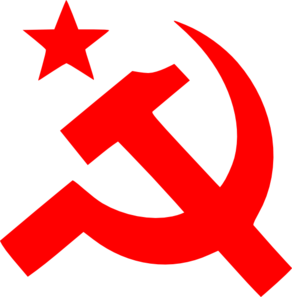
NARENDRA Modi’s brief visit to Ukraine has been hailed by the pro-American circles and the corporate media as a big success. According to this version, here is an Indian leader whose international stature has been heightened by the holding of the G20 summit in Delhi and gaining recognition as a leader of the Global South, making a historic visit to Kyiv, thus opening the way for India to play a mediating role in bringing about peace in the Russia-Ukraine conflict.
But, unfortunately, for the sycophantic media and the pro-US commentators, the Ukraine president Zelenskyy, in his press conference after the Modi visit, made some blunt remarks. He expressed his unhappiness about India buying Russian oil and helping to finance its arms industry. He also dismissed any role for India in hosting a peace summit. He stated that he cannot be able to conduct a peace summit in a country “who has not joined the communiqué of the peace summit”; a reference to the first peace conference which was held in Switzerland in June this year. A joint secretary of the ministry of external affairs had attended the meeting, but India did not sign the communiqué. Zelenskyy also stated that when he visits India, he wanted India on his side and “not balancing between US and Russia”. Zelenskyy spoke, as if he saw Modi was a junior ally of the United States just like himself and therefore could be spoken to in this manner.
The real intent behind Modi’s visit to Kyiv is evident to all but those blinkered by talk of India being a Vishwa Guru. Modi’s visit to Moscow in July coincided with the holding of the 75th anniversary meeting of NATO in Washington. The spectacle of Modi hugging president Putin and receiving the highest Russian civilian award from Putin caused indignation in Washington. The NATO meeting was meant to marshal all forces against Putin’s Russia, when on that very occasion, the `Indo-Pacific’ ally of the US was brazenly courting the enemy.
There was a chorus of disapproval voiced by various representatives of the Biden administration, ranging from national security advisor, Jake Sullivan, to the state department spokesperson. But it was left to the American Ambassador to India, Eric Garcetti, to convey the warning that the US-India defence partnership is amongst the most consequential in the world, but “don’t take the relationship for granted”. He added: “I know India like its strategic autonomy. But in times of conflict, there is no such thing as strategic autonomy”.
The national security advisor Ajit Doval called up the US national security advisor Jake Sullivan just two days after Modi’s Russia visit to mollify the Americans to assure them that India would be seriously pursuing the strategic alliance and confirming its participation in the forthcoming Quad foreign ministers’ meeting in Tokyo. Soon after, foreign ministry sources began briefing the media about a possible visit of Modi to Ukraine in the third week of August. It is evident, therefore, that Narendra Modi went through the motions of reaching out to Ukraine in order to pacify the Americans and to signal India’s continuing fealty to the US alliance.
This commitment to its US ally was further exemplified by the visit of defence minister Rajnath Singh to the US which began exactly on the day of Modi’s trip to Kyiv. The four-day visit has led to the signing of a `Security of Supplies Arrangement’ (SOSA) and an agreement for posting of Indian military officers as liason at key US commands. As part of the burgeoning purchase of arms from the United States, the US government approved the sale of anti-submarine sonobuoys amounting to 58.6 million dollars.
While India cannot dispense with its longstanding ties with Russia, especially military supplies in the short term, the Modi visit to Kyiv and the outcome of Rajnath Singh’s visit to the US show that the Modi government is set on a course of strengthening its strategic alliance with the United States and signaling, at the same time, that it is willing to lessen its dependence and ties with Russia in the long run. The Modi government seems to have learnt its lesson – that there is not much scope for strategic autonomy whilst being a US ally.
(August 28, 2024)


